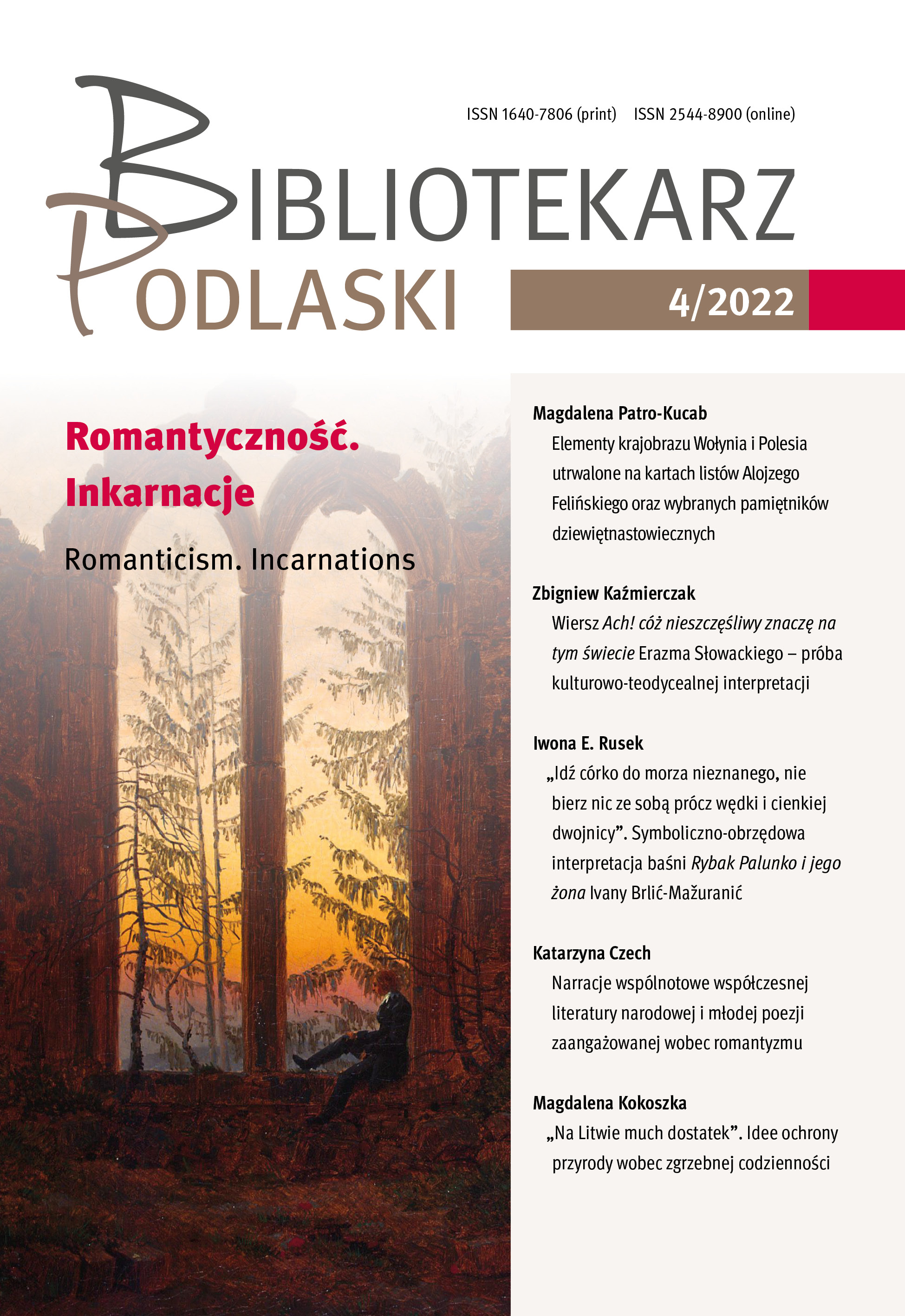Abstract
The article concerns the study of foreign-language concepts in the titles of the latest Russian drama plays. The material for the study is the texts of the modern plays „Hype” by V. Olkhovskaya and „Topless Photo” by N. Blok. The focus is on the
verbal representations of the concepts „hype” and „topless”, analyzed from two methodological perspectives—the literary and the linguistic. This interdisciplinary approach provided a comprehensive study of the poetics and semantics of the dramatic text, which allowed the conceptual parameters of text formation in the latest Russian drama to be highlighted. The results obtained were based on an analysis of the dramatic picture of the world, its reception by the reader, and the conceptualization of the text through the title of the dramatic work. It has been proved that the key role in the development of the plot line, the formation of the world picture, and the actualization of the communicative interaction of the characters, belong to the foreign-language concept in the title of the play. Thus, we can observe the thematization of the author’s communicative influence on the reader, as well as
the interpenetration of dramatic and network discourse.
References
Atamanova S., Eksperimenty s formoy v p’yesakh opodrostkakh i internete (na materiale p’yes K. Rinderknekht «Liviya, 13» i N. Blok «Foto topless», [in:] Aktual’nyye voprosy filologicheskoy nauki XXI veka: chast’ 2: Sovremennyye lingvisticheskiye issledovaniya, 2020.
Babenko L., Filologicheskiy analiz teksta. Osnovyteorii, printsipy i aspekty analiza, Moskva, Yekaterinburg 2004.
Babenko L., Kazarinyu., Lingvisticheskiy analiz khudozhestvennogo teksta, Moskva 2003.
Bolotnova N., Filologicheskiy analiz teksta, Moskva 2007.
Elektronnyy slovar’ molodezhnogo slenga, https://teenslang.su/content [8 July 2021].
Gal’perin I., Tekst kak ob’’yekt lingvisticheskogo issledovaniya, Moskva 2006.
Grigoryan V., Khayp k opredeleniyu ponyatiy v sotsiogumanitarnykh issledovaniyakh, „Molodoy uchenyy” 2019, 10.
Korolʹowa W., Komunikatywno-prahmatyczna orhanizaciia suczasnoji dramy, Dnipro 2016.
Krasovskaya N., Khudozhestvennyy kontsept: metody i priyemy issledovaniya, „Izvestiya Saratovskogo universiteta. Seriya Filologiya, zhurnalistika” 2009, 9 (4).
Krysin L., Nekotoryye teoreticheskiye voprosy zaimstvovaniya. Russkoye slovo, svoye i chuzhoye, Moskva 2004.
Kukharenko W., Interpretacija tekstu, Winnycia 2004.
Lavlinskiy S., Pavlov A., O performativno-retseptivnom potentsiale sovremennoy dramaturgii, [in:] Noveyshayadrama rubezha XX–XXI vv.: predvaritel’nyye itogi, 2016.
Mel’nikova A., Khayp kak novyy sposobprezentatsii molodezhi v virtual’noy srede, „Kul’turnaya zhizn’ yuga Rossii” 2017, 4 (67).
Miller L., Khudozhestvennaya kartina mira i mirkhudozhestvennykh tekstov, Sankt-Peterburg 2003.
Nechayeva I., Yazykovyye izmeneniya iprintsipy orfograficheskogo normirovaniya (na materiale inoyazychnykh neologizmov), „Acta Linguistica Petropolitana. Trudy instituta lingvisticheskikh issledovaniy” 2012.
Oxford English Dictionary, https://www.oxfordlearnersdictionaries.com [8 July 2021].
Ozhegov S., Shvedovan. Tolkovyy slovar’ sovremennogo russkogo yazyka, https://povto.ru/russkie/slovari/tolkovie/ozhegova/search_ozhegov.php [10 July 2021].
Podkovyrin Yu., Zaglaviye, „Novyy filologicheskiy vestnik” 2011, 2, https://cyberleninka.ru/article/n/zaglavie [15 Yanvar’ 2021].
Prakticheskaya transkriptsiya famil’no-imennykh grupp, ed. R. Gilyarevskiy, Moskva 2004.
Samarin D., Khayp kak mediafakt v prostranstve yazyka ikul’tury: za i protiv, „Vestnik Cherepovetskogo gosudarstvennogo universiteta” 2019, 4.
Sem’yan T., Performativnyy kharakter tekstasovremennoy otechestvennoy dramy, „Ural’skiy filologicheskiy vestnik. Seriya: Russkaya literatura XX-XXI vekov:napravleniya i techeniya” 2012, https://cyberleninka.ru/article/n/performativnyy-harakter-teksta-sovremennoy-otechestvennoy-dramy [12 Yanvar’ 2021].
Shagalova Ye., Samyy noveyshiy tolkovyy slovar’ russkogo yazyka XXI veka: ok. 1 500 slov, Moskva 2012.
Turko U., Osvoyeniye noveyshikh zaimstvovaniy skonsonantnym udvoyeniyem, „Filologicheskiye nauki. Voprosy teorii i praktiki” 2016, 5.59.1 https://cyberleninka.ru/article/n/osvoenie-noveyshih-zaimstvovaniy-s-konsonantnym-udvoeniem [14 January 2021].
Yefanov A., Khayp kak novyy kommunikativnyy trend, „Sovremennyy diskurs-analiz” 2018, 3.20.
Yefremova T., Novyy slovar’ russkogoyazyka. Tolkovo-slovoobrazovatel’nyy, https://classes.ru/all-russian/russian-dictionary-Efremova-term-99546.htm [20 July 2021].

This work is licensed under a Creative Commons Attribution-ShareAlike 4.0 International License.
Copyright (c) 2023 Natalia Maliutina ; Natalia Kondratenko


